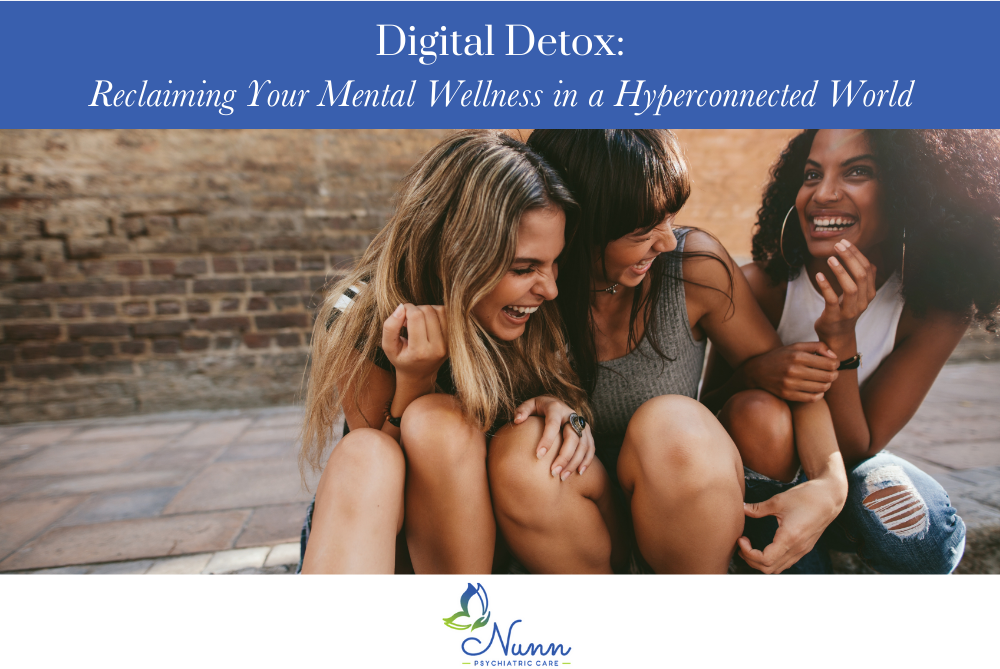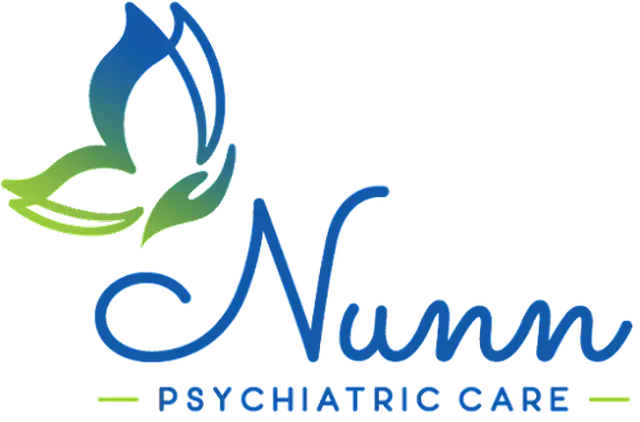 Presented by Nunn Psychiatric Care
Presented by Nunn Psychiatric Care
In today’s fast-paced, tech-driven society, our smartphones, computers, and tablets have become essential tools for work, communication, and entertainment. While these devices offer countless benefits, overuse can take a serious toll on our mental and emotional health. That’s where a digital detox comes in—a purposeful break from digital devices to help restore balance and promote well-being.
At Nunn Psychiatric Care, we believe in addressing mental health holistically, and that includes understanding the impact of technology on your daily life. Let’s explore what a digital detox involves, its benefits, and how you can start one today.
What Is a Digital Detox?
A digital detox refers to a period of time during which a person refrains from using digital devices such as smartphones, computers, tablets, and social media platforms. The goal is to reduce stress, improve sleep, reconnect with the present moment, and foster real-world relationships.
You don’t have to go “off the grid” entirely—rather, the aim is to create intentional boundaries around screen time and rediscover what life feels like without constant digital stimulation.
Why Digital Detox Matters for Mental Health
Constant notifications, screen exposure, and the pressure of social media can lead to:
- Increased anxiety and depression
- Reduced attention span
- Poor sleep quality
- Lower self-esteem
- Digital burnout
These effects often go unnoticed until they manifest as chronic stress, mood swings, or emotional exhaustion. A digital detox helps your brain rest, recharge, and refocus.
Benefits of a Digital Detox
Stepping away from your devices—even for a few hours—can offer profound benefits:
- Better sleep: Blue light from screens can disrupt melatonin production. Reducing screen time helps regulate your sleep cycle.
- Improved mood: Less screen time often correlates with reduced anxiety and depression symptoms.
- Enhanced focus: Giving your brain a break from multitasking can improve attention span and cognitive clarity.
- Stronger relationships: With fewer distractions, you may find yourself more present and engaged with loved ones.
- Increased productivity: Fewer distractions mean more efficient work and better time management.
Tips for a Successful Digital Detox
- Start small – Try unplugging for an hour before bed or during meals.
- Set boundaries – Designate “no screen” zones like the bedroom or dinner table.
- Use technology intentionally – Turn off non-essential notifications and delete apps that don’t serve your well-being.
- Plan tech-free activities – Read a book, go for a walk, or engage in hobbies that don’t involve screens.
- Communicate with others – Let friends and family know you’re taking a break so they understand your reduced availability.
Q&A: Digital Detox at Nunn Psychiatric Care
Q: How do I know if I need a digital detox?
A: If you feel anxious when you’re not near your phone, check social media compulsively, or struggle to concentrate, it may be time to take a break from screens. Difficulty sleeping and feeling emotionally drained after scrolling online are also signs.
Q: Is a digital detox recommended for teens and children?
A: Absolutely. Young people are particularly vulnerable to the mental health impacts of excessive screen time. At Nunn Psychiatric Care, we work with families to create age-appropriate screen time plans that support healthy development.
Q: How long should a digital detox last?
A: That depends on your lifestyle and goals. Some people benefit from a weekend break, while others may commit to screen-free evenings or social media fasts for a week or more. Our providers can help tailor a plan that fits your needs.
Q: What if I need technology for work or school?
A: A digital detox doesn’t mean eliminating all tech use. It’s about mindful consumption. We help patients differentiate between necessary and excessive use, encouraging purposeful screen time while minimizing distractions.
Q: Can a digital detox help with anxiety or depression?
A: Yes. Many patients report lower anxiety levels and improved mood after reducing their screen time. While it’s not a substitute for professional treatment, a detox can complement therapy and other interventions.
Q: Does Nunn Psychiatric Care offer support for digital addiction?
A: Yes. We offer personalized mental health support, including therapy and behavioral strategies to manage screen addiction, social media overuse, and related issues.
Ready to Reconnect with Yourself?
Taking a step back from the digital world can lead to powerful changes in your emotional well-being. Whether you’re experiencing stress, anxiety, or simply feel overwhelmed by constant connectivity, a digital detox could be the reset you need.
If you’re unsure how to begin or want professional support in creating healthier tech habits, we’re here to help.
Contact Nunn Psychiatric Care Today
📍 Address:
113 Lincoln Dr
Hodgenville, KY 42748
📞 Phone: (270) 358-6221
Our compassionate team is dedicated to helping you find balance in a modern world. Call today to schedule an appointment and take the first step toward better mental health and a more mindful lifestyle.
Nunn Psychiatric Care — Supporting Mental Wellness in Every Season of Life.
